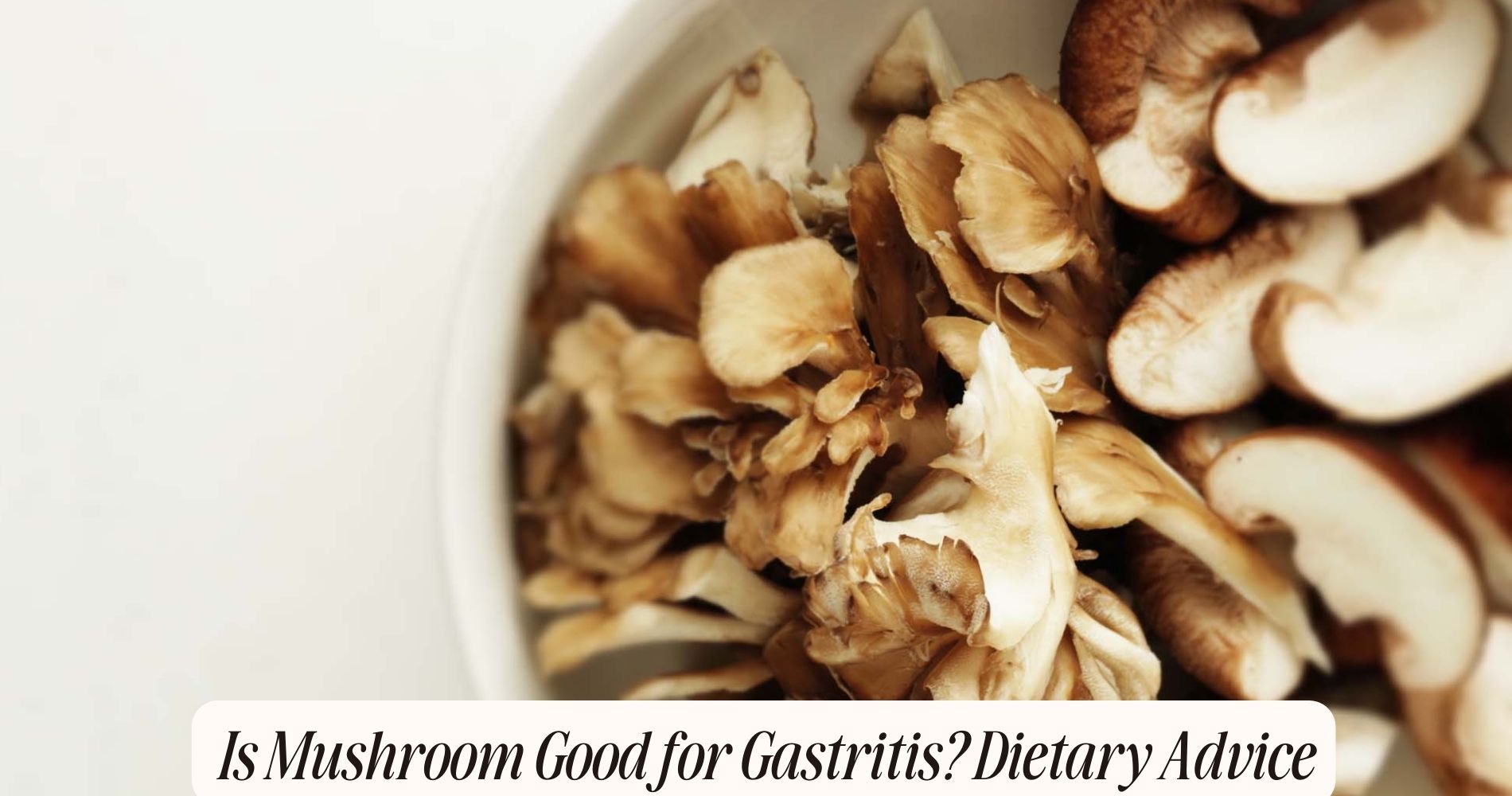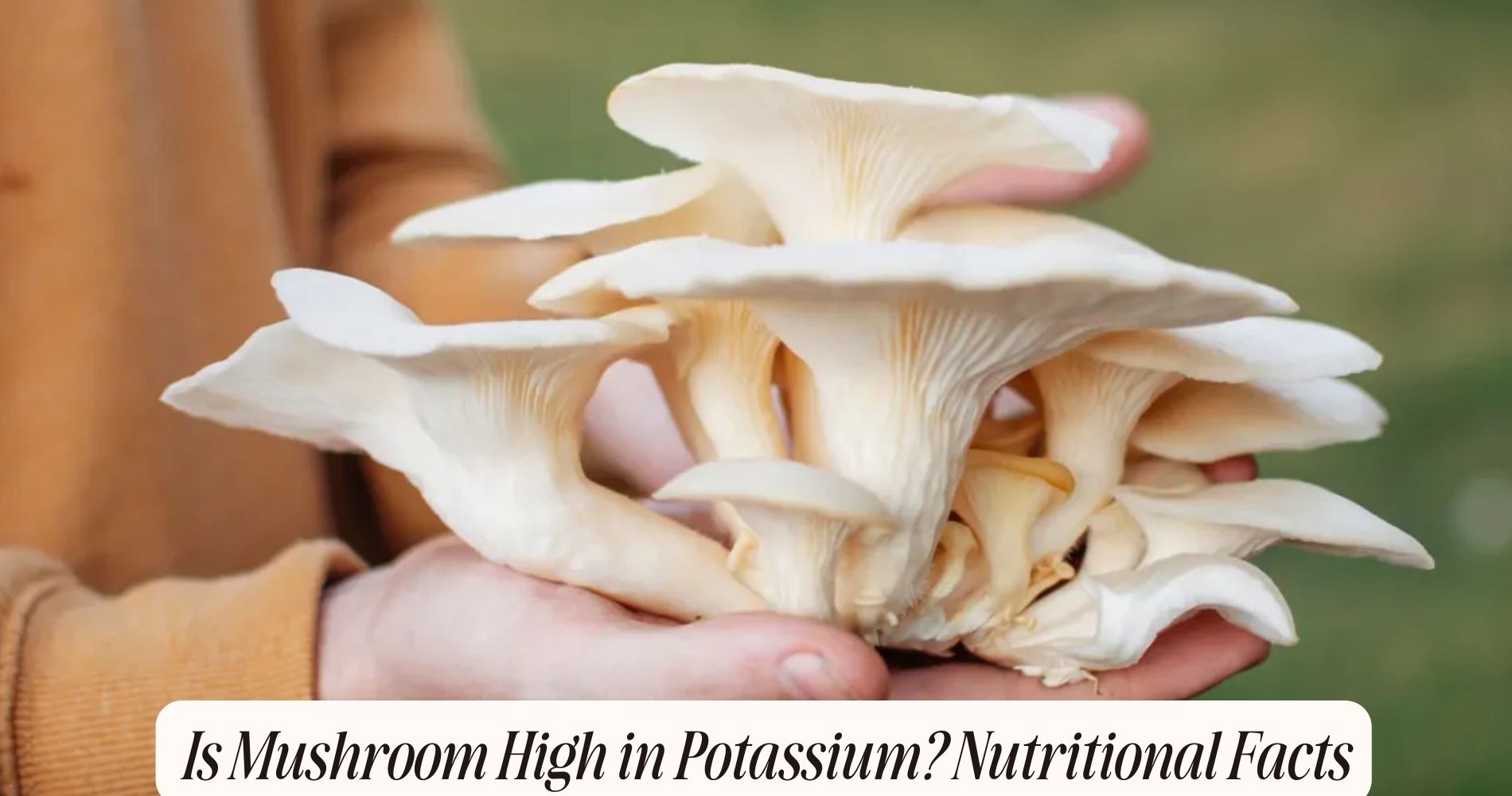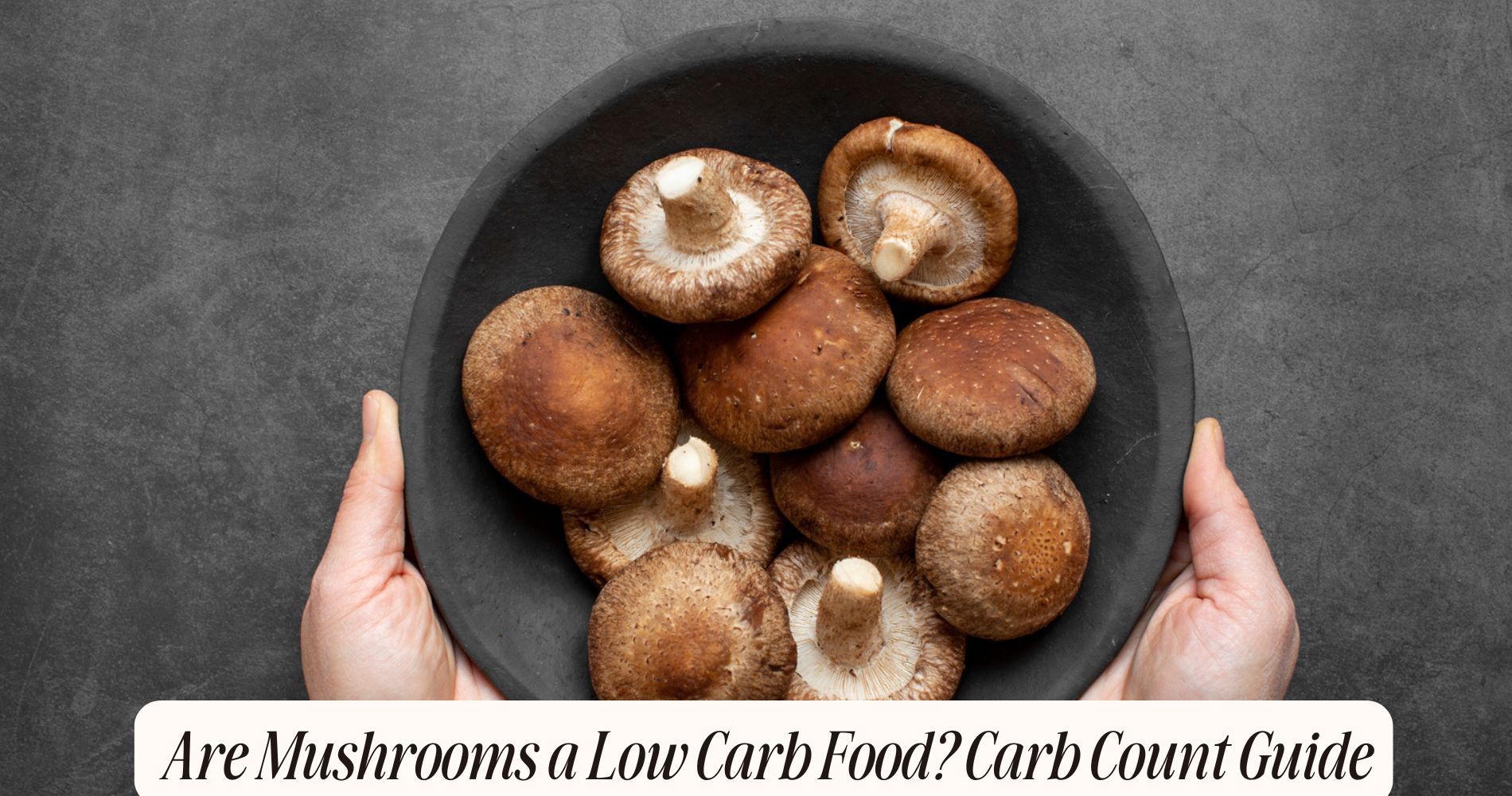
Is Mushroom Good for Gastritis? Dietary Advice
Is mushroom good for gastritis? Incorporating mushrooms into your diet can benefit your gastritis due to their anti-inflammatory and antioxidant properties. They're rich in B vitamins and fiber, which supports digestive health. Varieties like shiitake and maitake are particularly effective in reducing stomach inflammation. However, note your individual tolerance since some mushrooms can aggravate symptoms due to high histamine levels. Opt for cooking methods like steaming or sautéing to enhance digestibility. Including mushrooms alongside other soothing foods can promote gut healing and balance stomach acids. Want to know more about making mushrooms a part of your gastritis-friendly diet? Keep going!
Understanding Gastritis
If you're dealing with gastritis, it's essential to understand what it is and how it affects your digestive system.
Gastritis involves inflammation of the stomach lining, which can lead to symptoms like abdominal pain, nausea, vomiting, and indigestion. Understanding the gastritis causes is vital for effective management. Common triggers include prolonged use of NSAIDs, excessive alcohol consumption, stress, and bacterial infections like Helicobacter pylori.
To manage your condition, a proper gastritis diagnosis is the first step. Your healthcare provider will likely start with a thorough medical history and physical examination.
Diagnostic tests may include blood tests to check for anemia or H. pylori infection, stool tests for blood, and breath tests for detecting bacterial presence. In some cases, an endoscopy might be necessary to visually inspect your stomach lining and obtain biopsies.
Nutritional Profile of Mushrooms
When managing gastritis through diet, incorporating nutrient-dense foods like mushrooms can be particularly beneficial due to their rich nutritional profile.
Mushrooms are low in calories and packed with essential nutrients, making them an excellent choice for a gastritis-friendly diet. They're a good source of vitamins such as B vitamins (riboflavin, niacin, and pantothenic acid) and minerals like selenium, copper, and potassium. These nutrients support various bodily functions, from energy production to immune support.
Mushroom varieties like shiitake, portobello, and maitake each offer unique benefits and culinary uses. Shiitake mushrooms, for instance, are known for their savory flavor and high concentration of beta-glucans, which can support immune health. Portobello mushrooms provide a meaty texture, making them a great substitute for high-fat meats, potentially reducing inflammation. Maitake mushrooms are rich in antioxidants and can be easily added to soups and stir-fries.

Incorporating different mushroom varieties into your meals not only diversifies your diet but also guarantees you receive a broad spectrum of nutrients. Whether you're adding them to a salad, soup, or main dish, mushrooms can be a versatile and healthful addition to your gastritis management plan.
Anti-inflammatory Properties
Mushrooms possess potent anti-inflammatory properties, making them an excellent addition to a diet aimed at managing gastritis. Research shows that many mushroom varieties, such as shiitake, maitake, and reishi, contain bioactive compounds like polysaccharides and triterpenoids. These compounds help reduce inflammation in the stomach lining, which can alleviate the symptoms of gastritis. By incorporating these mushrooms into your meals, you can harness their natural healing properties.
When it comes to cooking techniques, it's crucial to prepare mushrooms in ways that preserve their anti-inflammatory benefits. Steaming and sautéing are excellent methods as they retain the mushrooms' nutritional integrity without adding harmful fats or excessive heat that can degrade beneficial compounds. Avoid frying mushrooms, as this can introduce inflammatory fats that counteract their benefits.
You can add mushrooms to a variety of dishes like soups, salads, and stir-fries to make your meals both delicious and therapeutic. Remember, the goal is to include these anti-inflammatory powerhouses regularly in your diet. By doing so, you can help manage gastritis symptoms more effectively and improve your overall digestive health.
Antioxidant Content
In addition to their anti-inflammatory benefits, mushrooms are also rich in antioxidants, which play an essential role in protecting your stomach lining from oxidative stress. Oxidative stress can exacerbate gastritis symptoms by damaging the stomach lining. Including mushrooms in your diet can help counteract this damage.
Different mushroom varieties, such as shiitake, maitake, and oyster mushrooms, are particularly high in antioxidants. These compounds, including selenium, vitamin C, and various polyphenols, help neutralize harmful free radicals in your stomach. By reducing oxidative stress, these antioxidants may contribute to a healthier stomach lining and reduced inflammation.

For instance, selenium found in many mushrooms is known for its antioxidant properties, which support the immune system and enhance tissue repair. Vitamin C not only boosts your immune function but also aids in the regeneration of your stomach lining.
Polyphenols, another group of antioxidants present in mushrooms, have been shown to lower inflammation and protect against cellular damage.
Fiber and Digestion
Understanding fiber's role in your diet is vital for managing gastritis symptoms.
Including fiber-rich foods like mushrooms can improve digestion and reduce discomfort.
It's important to focus on their benefits for overall digestive health and symptom relief.
Fiber's Role Explained
Dietary fiber plays a critical role in promoting healthy digestion and managing gastritis symptoms. When you include fiber-rich foods, like certain mushroom varieties, in your diet, you're helping your digestive system function more efficiently. Different mushroom varieties, such as shiitake, maitake, and oyster mushrooms, offer diverse fiber sources that can aid in alleviating the discomfort associated with gastritis.
Fiber helps by adding bulk to your stool, which can make your bowel movements more regular and reduce constipation—a common issue for those dealing with gastritis. Additionally, dietary fiber slows down the digestion process, allowing your stomach to work less strenuously, which can help prevent the exacerbation of gastritis symptoms.
The soluble fiber found in mushrooms also acts as a prebiotic, feeding the beneficial bacteria in your gut. A balanced gut microbiome can contribute to overall gastrointestinal health and may help in mitigating inflammation linked to gastritis.
To guarantee you're getting enough fiber, aim to incorporate a variety of fiber sources into your meals. Besides mushrooms, consider including other high-fiber foods like whole grains, fruits, and vegetables. By doing so, you're not only supporting your digestive health but also potentially easing your gastritis symptoms.
Digestion Improvement Benefits
Including fiber-rich foods like mushrooms not only supports your digestive system but also enhances overall digestion by promoting regular bowel movements and reducing constipation.
Fiber is an essential component for maintaining a healthy gut, and mushrooms are a fantastic source. By incorporating different mushroom varieties such as shiitake, portobello, and maitake, you can diversify the types of fibers and other beneficial nutrients you consume, which aid in digestion.
Mushrooms contain both soluble and insoluble fibers. Soluble fiber dissolves in water to form a gel-like substance that can help regulate blood sugar levels and lower cholesterol, while insoluble fiber adds bulk to stool, making it easier to pass and thereby preventing constipation.
Additionally, the presence of these fibers in various mushroom varieties helps to increase the production of beneficial bacteria in your gut, which plays a significant role in breaking down food and absorbing nutrients effectively.
Moreover, mushrooms can stimulate the release of digestive enzymes, further aiding the digestive process. Digestive enzymes are proteins that speed up the breakdown of food components, ensuring you absorb maximum nutrients.
Incorporating mushrooms into your diet can therefore support a more efficient digestive system.
Gastritis Symptom Relief
Eating mushrooms can help alleviate gastritis symptoms by providing essential fibers that aid in digestion and promote gut health. Mushrooms are rich in soluble and insoluble fibers, which can enhance bowel regularity and reduce inflammation in the stomach lining. By incorporating mushrooms into your diet, you can foster an environment in your gut that's conducive to healing and comfort.
Lifestyle modifications play an important role in managing gastritis. Incorporating more fiber-rich foods like mushrooms can be a simple yet effective change. The fiber content in mushrooms helps to balance stomach acids and prevent irritation, making it easier for you to manage your symptoms. Additionally, mushrooms are low in fat and calories, which can further reduce the risk of exacerbating your gastritis.

Herbal remedies can also complement your dietary changes. Herbs like ginger and chamomile, known for their anti-inflammatory and soothing properties, can work synergistically with the fibers in mushrooms. Combining these herbal remedies with a diet rich in mushrooms can provide a holistic approach to relieving gastritis symptoms.
Potential Triggers
Certain types of mushrooms can frequently trigger gastritis symptoms due to their high histamine content and potential for fungal contamination. If you're sensitive to histamines, some mushroom varieties, such as shiitake and portobello, might exacerbate your condition.
It's important to understand that individual tolerance plays a significant role here. While one person may tolerate certain mushrooms well, another might experience adverse reactions.
You should also consider the possibility of fungal contamination. Mushrooms can harbor molds and other fungi that might irritate your stomach lining. Opting for fresh, well-stored mushrooms can lessen this risk, but it doesn't eliminate it entirely.
Furthermore, some mushrooms contain compounds that are difficult for your digestive system to break down. This can lead to bloating, gas, and discomfort, making gastritis symptoms worse.
To avoid these triggers, pay attention to how your body reacts to different mushroom varieties and adjust your diet accordingly.
Safe Preparation Methods
Properly preparing mushrooms can greatly reduce the risk of triggering gastritis symptoms. To start, it's essential to choose the right mushroom varieties. Opt for easily digestible types like shiitake, maitake, or white button mushrooms, which tend to be gentler on your stomach.

When it comes to cooking techniques, steaming and boiling are your best bets. These methods help soften the mushrooms, making them easier to digest. You can steam mushrooms for about 5-7 minutes, or boil them until they're tender. Avoid frying or grilling, as these methods can introduce additional fats and irritants that may exacerbate your gastritis symptoms.
Another key point is to incorporate minimal seasoning. Stick to mild herbs like parsley or thyme and avoid spicy or acidic additions. Always wash the mushrooms thoroughly to remove any potential irritants or pesticides.
Additionally, consider cooking mushrooms with other soothing foods. Pairing them with ingredients like cooked carrots or rice can create a more balanced, gentle meal. By carefully selecting your mushroom varieties and employing gentle cooking techniques, you can enjoy this nutritious ingredient without worsening your gastritis symptoms.
Dietary Recommendations
When managing gastritis, you should consider incorporating mushrooms into your diet due to their anti-inflammatory properties.
They're also rich in essential nutrients like vitamins, minerals, and antioxidants that support overall health.
Including mushrooms can help reduce inflammation and provide nutritional benefits, making them a valuable addition to your meal plan.
Anti-inflammatory Benefits
Incorporating mushrooms into your diet can help reduce inflammation, thanks to their rich content of bioactive compounds like polysaccharides and antioxidants. Different mushroom varieties, such as shiitake, maitake, and reishi, have been studied for their anti-inflammatory properties. These mushrooms can be easily integrated into your meals through various culinary uses, enhancing both flavor and nutritional value.
Polysaccharides, particularly beta-glucans found in mushrooms, are known to modulate the immune system, thereby reducing inflammation. Antioxidants like ergothioneine and selenium present in mushrooms help neutralize free radicals, which can otherwise exacerbate inflammation and contribute to gastritis symptoms. Including mushrooms in your diet may provide a natural way to alleviate inflammation without relying solely on medication.
Focus on adding a variety of mushrooms to your dishes. You can sauté them as a side, incorporate them into soups and stews, or even use them as a meat substitute in vegetarian recipes. This diverse approach not only maximizes the anti-inflammatory benefits but also makes your meals more enjoyable. Always verify that the mushrooms are cooked properly to enhance their digestibility and nutritional benefits.
Nutritional Value
Mushrooms are a nutrient-dense food, offering essential vitamins, minerals, and bioactive compounds that support overall health and can be particularly beneficial for those managing gastritis. They provide a rich source of B vitamins, such as riboflavin, niacin, and pantothenic acid, which help in energy metabolism and maintaining a healthy digestive system. Additionally, mushrooms are high in antioxidants like selenium and ergothioneine, which can reduce oxidative stress and inflammation in the stomach lining.
When considering mushroom varieties, opt for those that are easier to digest, such as white button, cremini, or shiitake mushrooms. These types typically have a softer texture and lower fiber content, making them gentler on an inflamed stomach.

Cooking techniques also play a vital role in maximizing the nutritional benefits while minimizing potential gastric irritation. Steaming or sautéing mushrooms in a small amount of olive oil can make them easier to digest compared to raw or heavily spiced preparations.
Incorporating mushrooms into your diet can be a tasty and nutritious way to help manage gastritis symptoms. Always consult with a healthcare provider or a registered dietitian to tailor dietary recommendations to your specific needs.
Enhance Your Wellness with SUPER MUSHROOM GUMMIES
While exploring whether mushrooms are good for gastritis, consider adding Well Gummies' SUPER MUSHROOM GUMMIES to your dietary regimen. This easy-to-use gum chew product contains 10 types of functional mushrooms. Our vegan gummies naturally fuel your brain and energize your body, providing calmer energy, sharper focus, and immune support for a balanced body and clear mind.
Savor the delightful taste of fresh wild berries, as delicious as your favorite candy, without the jitters or crash. Support your health effortlessly and shine all day with the benefits of SUPER MUSHROOM GUMMIES.
Frequently Asked Questions
Can Mushrooms Help With Acid Reflux Symptoms?
You can manage acid reflux symptoms by selecting specific mushroom varieties and using gentle cooking methods. Opt for low-fat cooking techniques like steaming or baking to make mushrooms easier on your digestive system.
Are Certain Types of Mushrooms Better for Gastritis?
You might find that certain mushroom varieties, like shiitake and maitake, offer specific health benefits for gastritis. They contain anti-inflammatory properties that could help soothe your stomach lining. Always consult a nutritionist for personalized advice.
How Often Should Mushrooms Be Consumed for Gastritis Relief?
For ideal gastritis relief, consume mushrooms 2-3 times a week. Prioritize anti-inflammatory mushroom varieties like shiitake and maitake. Balance your diet with other soothing foods to enhance your overall digestive health.
Can Mushroom Supplements Be Beneficial for Gastritis?
You might find mushroom supplements beneficial for gastritis due to their rich mushroom nutrients and potent mushroom extracts. However, consult with a healthcare professional first to ascertain they're appropriate for your specific dietary needs and health condition.
Are There Any Specific Mushroom Recipes Recommended for Gastritis Patients?
For gastritis patients, you can try mushroom broth or stuffed mushrooms. These recipes are gentle on the stomach and provide essential nutrients. Make certain you use low-fat ingredients and avoid spicy seasonings to prevent irritation.
Conclusion
Understanding gastritis means making informed dietary choices.
Mushrooms, with their anti-inflammatory and antioxidant properties, can be beneficial. They provide fiber that aids digestion, but be cautious of potential triggers.
Stick to safe preparation methods like steaming or boiling to minimize irritation.
You'll find that including mushrooms in a balanced diet can support your digestive health while managing gastritis symptoms.
Always tailor your diet to your specific needs and consult with a healthcare professional.




